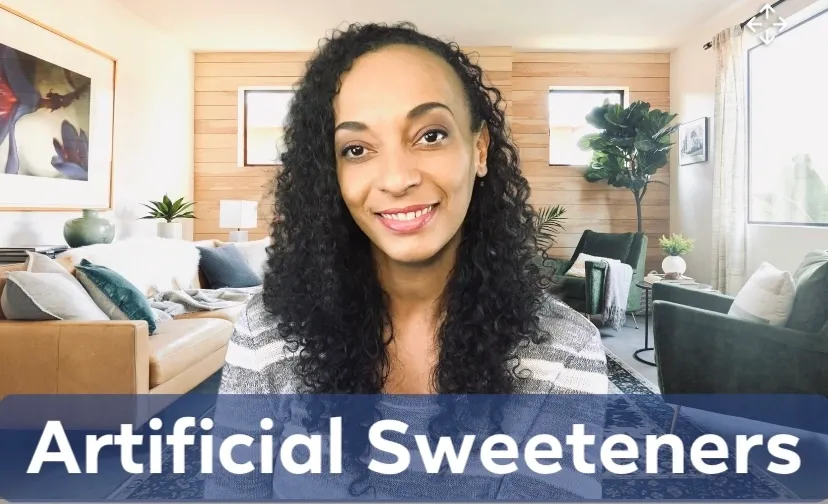
The FDA so far has approved 6 different artificial sweeteners:
- Saccharin
- Aspartame
- Acesulfame Potassium aka Ace K
- Sucralose
- Neotame
- Advantame
Artificial Sweeteners Can Cause Insulin Resistance:
The brain and body have a connection s when you taste something sweet the brain thinks its sugar and alerts the pancreas to produce insulin. Since there is no sugar the insulin builds up and can cause diabetes.Insulin resistance can also happen if the microbiome n the intestines digest the artificial sweeteners and trigger a sweetness response to the bran which alerts the body to create insulin that is not needed.
Artificial Sweeteners Can Have Hormonal Effects:
The microbiome in the intestines can also trigger hormones to increase appetite and modification of immune function.
Artificial Sweeteners Do Not Stop Sugar Cravings:
You can’t trick your brain into thinking you are eating real sugar. its been studies that when you ingest artificial sweeteners it activates a different neuro reward pathway so your not getting the sugar high and will still have sugar cravings.
Artificial Sweeteners Change Taste Buds:
Long term use of artificial sweeteners change how the taste buds perceive sweetness. Naturally sweeten foods and beverages will not taste sweet anymore because the taste buds get used to the high intensity sweetness.
Aspartame:
Aspartame is one of the oldest and most popular artificial high intensity sweeteners. It’s about 200x sweeter than sugar. Aspartame is manmade by combining 2 amino acids L-Aspartic acid and L-Phenylalanine and undergoing a chemical process. Both of these amino acids separately occur naturally in foods and when it reaches the stomach the acids break back apart into Aspartic and Phenylalanine so that the body can process them. The concern that aspartame can cause cancer comes from what happens in the gut. Some researcher found that during the breaking apart of the amino acids that formaldehyde forms as a byproduct. According to the FDA that research is inconclusive and that aspartame is the most studied substance on the market and very safe.
Acesulfame Potassium (Ace-K):
Ace K is about 200 times sweeter than sugar and contributes zero calories because the body does not absorb it and then passes unchanged through your urine. Ace K is typically blended with other sweeteners like aspartame or Sucralose because it improves the taste to be more like sugar. The FDA has conducted over 90 studies and has found Ace K to be safe.
Sucralose (Slpenda):
Sucralose is about 600x sweeter than sugar, its structurally is very similar to sugar except for one slight modification, which allows it to pass through the body without getting broken down as sugar or carbs. It is a fairly newly approved artificial sweetener just recognized as a general-purpose sweetener by the FDA in 1999 with over 110 studies proving its safety. It said to be stable under high heat so you can bake with it but it was found that if you mix sucralose with glycerol when baking it can create a cancer causing chemical (chloropropanols).
To learn more check out these links:
FDA High Intensity Sweeteners Link: https://www.fda.gov/food/food-additives-petitions/additional-information-about-high-intensity-sweeteners-permitted-use-food-united-states
2017 Research “Revisiting the safety of aspartame” https://academic.oup.com/nutritionreviews/article/75/9/718/4101228
2013 Research “Sucralose, A Synthetic Organochlorine Sweetener: Overview of Biological Issues” https://www.ncbi.nlm.nih.gov/pmc/articles/PMC3856475/
2020 Research “A Review of the Environmental Fate and Effects of Acesulfame‐Potassium”
https://www.ncbi.nlm.nih.gov/pmc/articles/PMC7318193/
2009 Research “Sucralose and its potential in generating chloropropanols in the presence of glycerol”. http://europepmc.org/article/AGR/IND44252645
